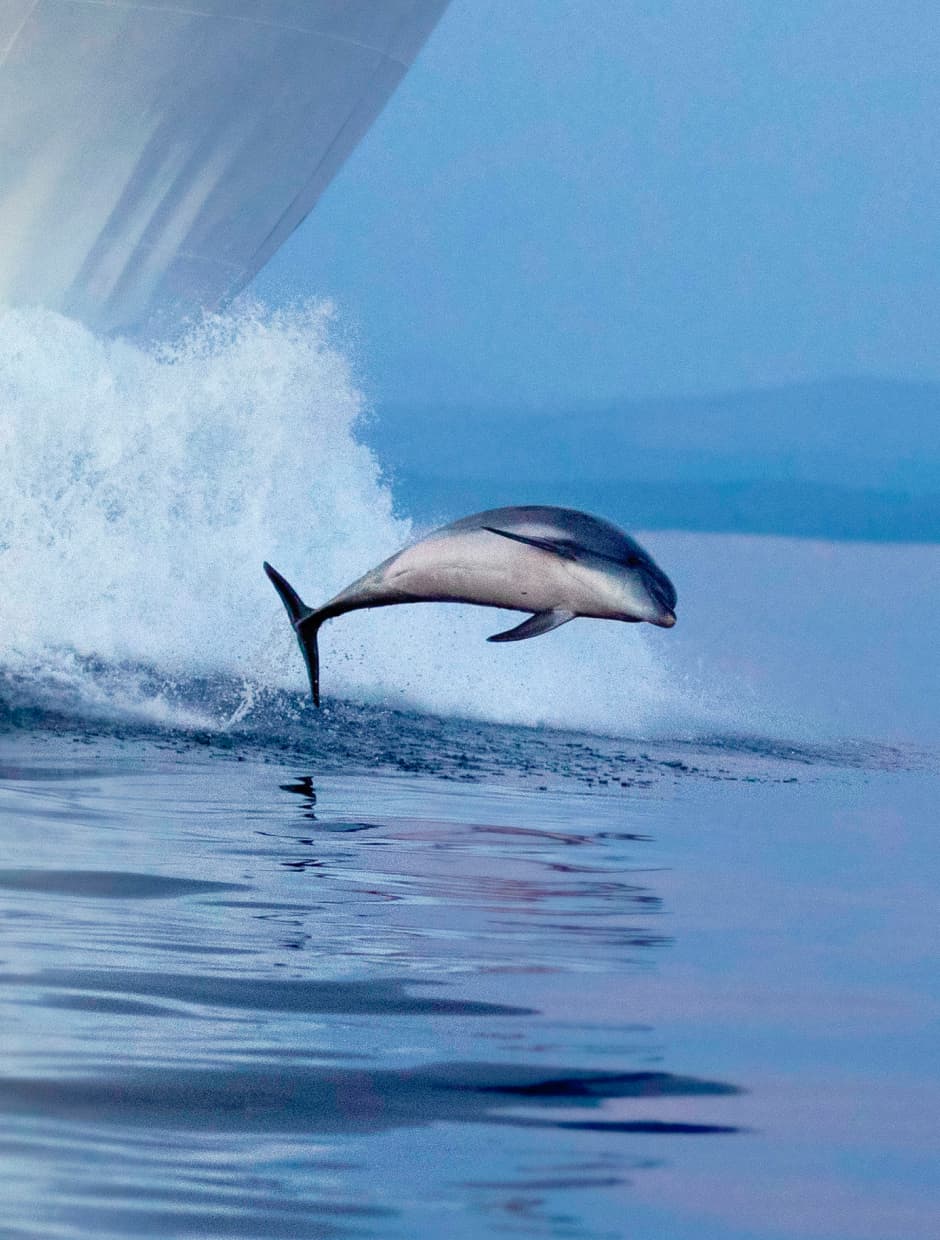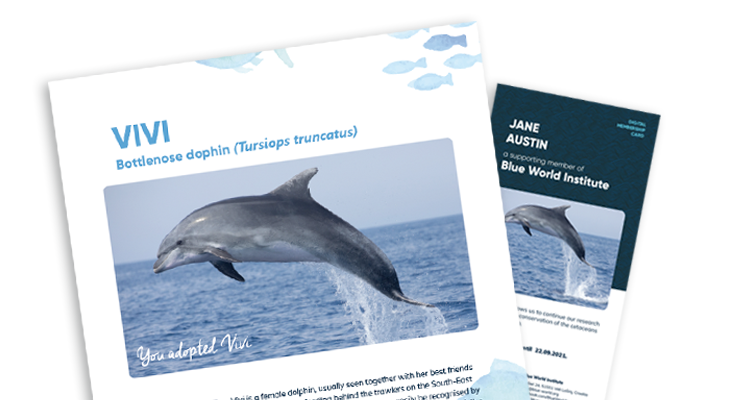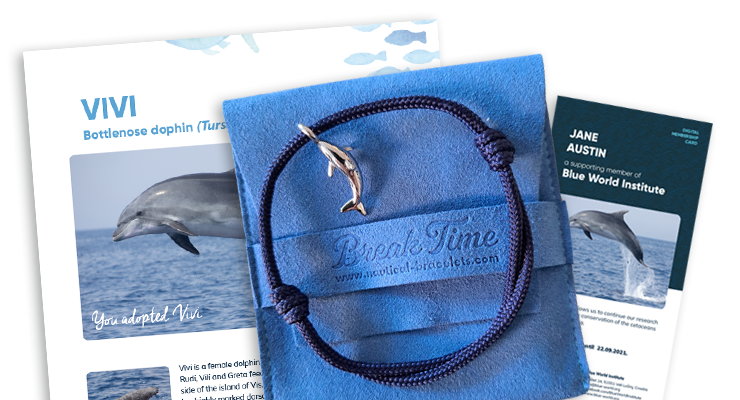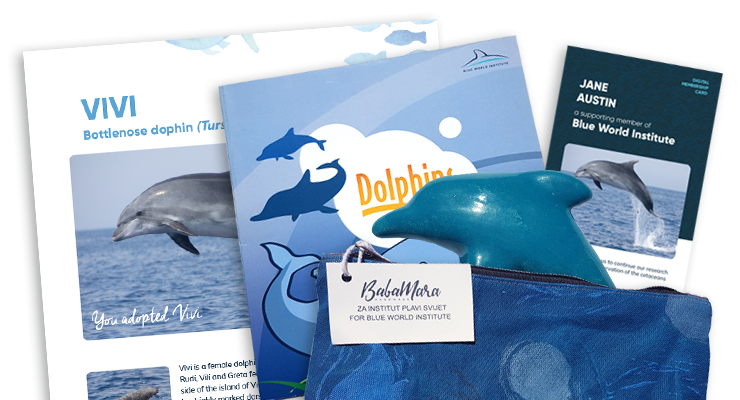Adopt a dolphin.
And make
a difference.
Mediterranean dolphins live in one of the most anthropogenically impacted marine environments in the world. Fisheries, marine traffic, oil and gas extraction, seismic surveys and naval exercises, high level of tourism and a huge number of recreational vessels threaten their survival!
 Learn how your adoption can help
Learn how your adoption can help






















